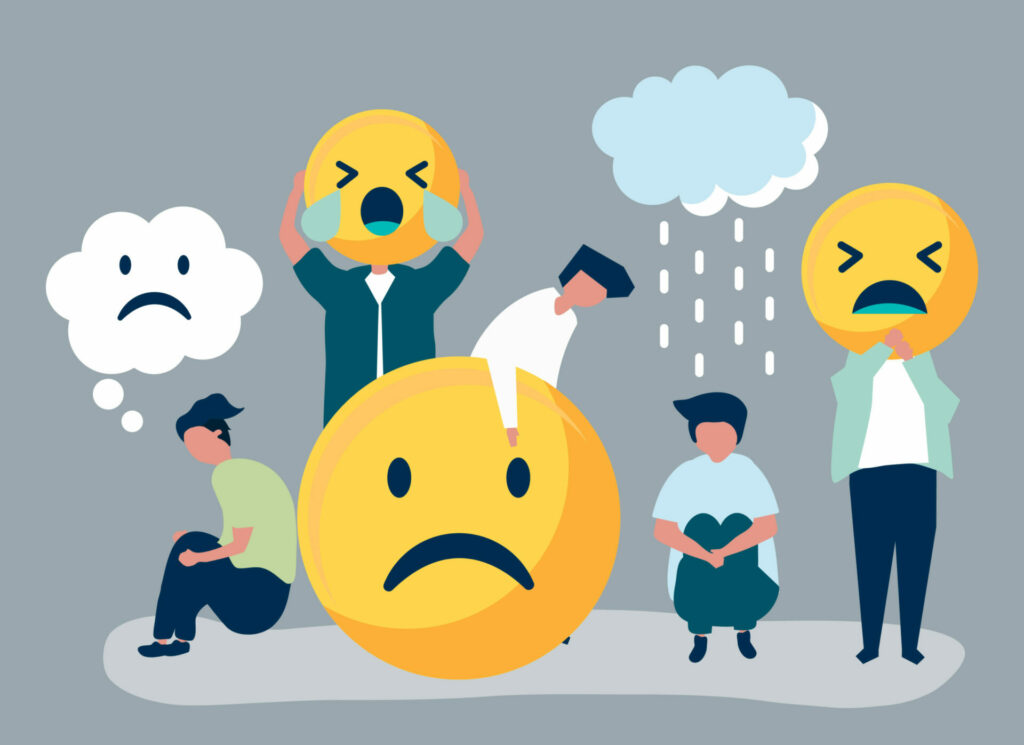Clinical depression is a serious mental illness that should not be taken lightly. It can affect anyone, regardless of age, race, or gender. Depression can cause people to feel sad, hopeless, and worthless. Some common symptoms of depression include feelings of sadness or emptiness, loss of interest in activities once enjoyed, changes in weight or appetite, difficulty sleeping or oversleeping, fatigue, feelings of worthlessness or guilt, and thoughts of suicide. If you are experiencing any of these symptoms for more than two weeks, please see your doctor as soon as possible. In this blog post, we will read about what is clinical depression, its signs, causes, and different treatment options.
Contents
- 1 What Is Clinical Depression?
- 2 Signs of Clinical Depression
- 2.1 Persistent feelings of sadness
- 2.2 Loss of interest in activities that were once enjoyed
- 2.3 Changes in sleep patterns
- 2.4 Changes in appetite
- 2.5 Feelings of worthlessness or guilt
- 2.6 Difficulty concentrating or making decisions
- 2.7 Fatigue
- 2.8 Irritability or anger
- 2.9 Feelings of hopelessness or helplessness
- 2.10 Feeling anxious or restless
- 2.11 Constant sadness or empty feelings
- 2.12 Thoughts of suicide or self-harm
- 3 Reasons for Clinical Depression
- 4 Stages of Clinical Depression
- 5 How Common Is Clinical Depression?
- 6 How Can Clinical Depression Be Treated?
- 7 How Does Clinical Depression Affect Someone?
- 8 How To Prevent Clinical Depression?
- 9 Conclusion
What Is Clinical Depression?
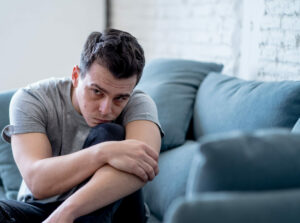
Clinical depression, also known as major depressive disorder or MDD, is a serious mental illness. It causes severe symptoms that interfere with your ability to work, sleep, eat, and enjoy life.
These symptoms can be extremely debilitating and last for weeks or even months at a time. Clinical depression is more than just feeling sad or going through a rough patch.
It’s a real medical condition that requires treatment by a doctor or mental health professional. If you think you may be suffering from major depression, it’s important to seek help as soon as possible.
Clinical depression is a serious illness that should not be ignored. If you think you may be suffering from major depression, seek help from a doctor or mental health professional as soon as possible. Early diagnosis and treatment can make a big difference in managing the symptoms of clinical depression and improving your quality of life.
Signs of Clinical Depression
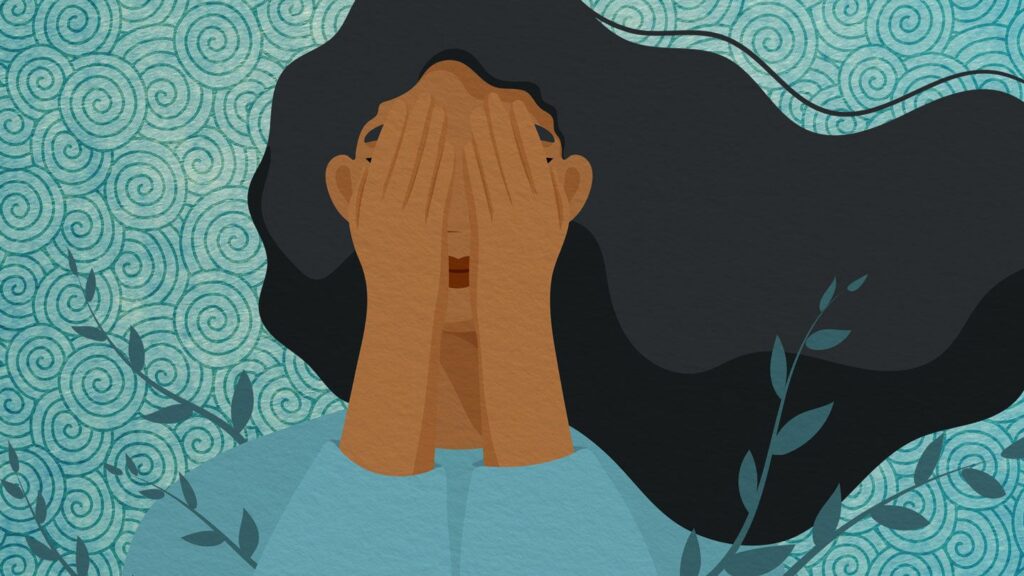
There are many signs of major depression. Some people may experience just a few of these signs, while others may experience many. The most common signs and symptoms include:
Persistent feelings of sadness
This is one of the signs of depression. People who are depressed often feel sadness that lasts for long periods, sometimes for weeks or even months at a time. This sadness can be so severe that it interferes with their daily life and activities. Many physical symptoms are associated with this sadness, such as fatigue, changes in appetite, and difficulty sleeping.
Loss of interest in activities that were once enjoyed
Another sign of clinical depression is a loss of interest in activities that were once enjoyed. This can be anything from not wanting to go out with friends or participate in hobbies. For some people, this loss of interest can be so severe that they no longer want to leave their house or interact with other people.
Changes in sleep patterns
One of the most common signs of depression is a change in sleep patterns. This can manifest itself in different ways for different people. Some may find it difficult to fall asleep, while others may find themselves sleeping more than usual. Some experience insomnia, which is when a person cannot fall asleep or stay asleep for long periods.
Changes in appetite
Another common sign of major depression is a change in appetite. This can be either an increase or decrease in appetite. For some people, this may mean that they are eating less than usual and losing weight. For others, it may mean that they are eating more than usual and gaining weight.
Feelings of worthlessness or guilt
Many people who are suffering from major depression feel worthless or guilty. They may believe that they are not good enough or that they do not deserve to be happy. These feelings can be so intense that they lead to thoughts of suicide or self-harm. Sometimes, these feelings are so overwhelming that a person may not be able to get out of bed or take care of their basic needs.
Difficulty concentrating or making decisions
Another sign of clinical depression is difficulty concentrating or making decisions. This can make it hard to perform everyday tasks, such as going to work or taking care of the house. For some people, this may mean that they are unable to function in their jobs. Others may find themselves struggling with simple decision-making, such as what to wear or what to eat.
Fatigue
Many people who are depressed feel fatigued all the time. This can be extremely debilitating and make it difficult to do anything, including basic self-care tasks. Fatigue can be so severe that it interferes with a person’s ability to work, go to school, or take care of their relationships. It also puts them at risk for accidents and injuries.
Irritability or anger
Irritability or anger is another sign of major depression. For some people, this may manifest itself as being easily annoyed or angered by things that normally would not bother them. For others, it may be more severe and result in outbursts of rage or violence. This can be extremely harmful to both the person suffering from depression and those around them.
Feelings of hopelessness or helplessness
Many people who are clinically depressed feel hopeless or helpless. They may believe that their situation is never going to improve and that there is nothing they can do to change it. These feelings can lead to thoughts of suicide or self-harm. sometimes, these feelings are so overwhelming that a person may not be able to get out of bed or take care of their basic needs.
Feeling anxious or restless
Anxiety and restlessness are also common symptoms of major depression. For some people, this may manifest itself as feeling on edge all the time or being unable to sit still. Others may find themselves pacing back and forth or fidgeting constantly. This can be extremely disruptive to a person’s life and make it difficult to focus on anything else.
Constant sadness or empty feelings
Many people who are clinically depressed feel sad all the time. This can be so severe that it interferes with their ability to enjoy activities that they used to love. For some people, this sadness may be accompanied by emptiness or hollowness inside. This can make it difficult to connect with other people or find meaning in anything.
Thoughts of suicide or self-harm
One of the most serious signs of clinical depression is thoughts of suicide or self-harm. If a person is starting to have these thoughts, it is important to get help right away. Depression can be treated and there are many resources available to those who need help.
These are some of the signs of clinical depression. If you or someone you know is experiencing any of these symptoms, it is important to seek help from a mental health professional. Clinical depression is a serious illness that can be life-threatening if not treated.
Reasons for Clinical Depression
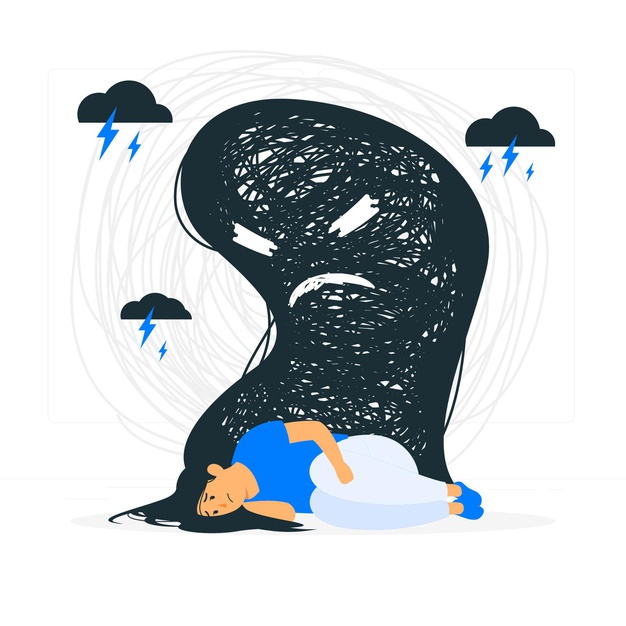
There are many reasons why a person may suffer from clinical depression. Sometimes it is caused by a chemical imbalance in the brain, or it may be the result of a major life event, such as the death of a loved one. Some of these reasons are:
Chemical Imbalances
One of the main common causes of clinical depression is an imbalance of chemicals in the brain. These chemicals, known as neurotransmitters, are responsible for regulating mood and emotions. When there is an imbalance of these chemicals, it can lead to feelings of sadness, hopelessness, and despair.
Major Life Events
Another common cause of clinical depression is a major life event. This could be something like the death of a loved one, losing your job, or going through a divorce. These events can trigger feelings of sadness, loneliness, and worthlessness. If you have experienced any major life changes in the past year, it may be one of the reasons you are feeling depressed.
Genetics
Depression can also be caused by genetics. If you have a family member who suffers from depression, you are more likely to suffer from it as well. This is because depression can be passed down from generation to generation. Genetics also plays a role in chemical imbalances in the brain, which can lead to depression.
Medical Conditions
Some medical conditions can cause clinical depression. These include thyroid problems, sleep disorders, and certain types of chronic pain. If you have any of these medical conditions, it may be one of the reasons you are feeling depressed. These medical conditions can also cause chemical imbalances in the brain, which can lead to depression.
Personality Traits
An individual’s personality can also play a role in their risk of developing clinical depression. People who are naturally pessimistic or have low self-esteem are more likely to suffer from depression. If you have any of these personality traits, it may be one of the reasons you are feeling depressed.
Abuse
One of the most common causes of clinical depression is abuse. Abuse can be physical, sexual, or emotional. If you have been a victim of abuse, it may be one of the reasons you are feeling depressed. Abuse can cause chemical imbalances in the brain, which can lead to depression.
Many types of abuse can cause clinical depression. These include:
Physical Abuse: This is when someone is physically harmed by another person. This can include hitting, kicking, or other forms of violence.
Sexual Abuse: This is when someone is forced to have sex against their will. This can include rape, molestation, or sexual harassment.
Emotional Abuse: This is when someone is verbally or emotionally harmed by another person. This can include name-calling, put-downs, or threats of violence.
Stages of Clinical Depression

There are generally five stages of clinical depression. They are:
Stage One: Depression
This is the first stage of clinical depression and is also known as Major Depressive Disorder. This stage can be marked by several symptoms that make it difficult for the person to function on a day-to-day basis. These symptoms include changes in sleeping patterns, fatigue, change in appetite, feelings of sadness and hopelessness, concentration problems, and suicidal thoughts.
Stage Two: Anxiety
The second stage of clinical depression is characterized by anxiety. This can manifest itself in several ways including physical symptoms such as sweating, trembling, and a racing heart. The person may also experience mental symptoms such as fearfulness, intrusive thoughts, and difficulty concentrating.
Stage Three: Mania
The third stage of clinical depression is known as mania. This stage is characterized by a period of intense energy and activity. The person may feel like they can do anything and be extremely productive. They may also experience racing thoughts, difficulty sleeping, and risky behavior.
Stage Four: Psychosis
The fourth stage of clinical depression is psychosis. This stage is characterized by a break from reality. The person may experience delusions or hallucinations. They may also have problems with concentration and memory.
Stage Five: Recovery
The fifth stage of clinical depression is recovery. This stage is marked by the person starting to feel better and their symptoms improving. They may still have some symptoms, but they will be less severe. They may also start to enjoy activities that they once found enjoyable.
These are some of the stages of clinical depression. If you or someone you know is dealing with clinical depression, it is important to seek help from a mental health professional.
How Common Is Clinical Depression?
Clinical depression is one of the most common mental disorders. Approximately 20 million adults suffer from clinical depression each year. Clinical depression can occur at any age but is most common in adults over the age of 24. Women are also more likely to experience clinical depression than men.
People who suffer from clinical depression often feel hopeless and helpless. They may lose interest in activities that they once enjoyed and have difficulty concentrating. Clinical depression can also lead to physical problems such as insomnia, fatigue, and pain.
Approximately half of the people who suffer from clinical depression will also experience anxiety. This can manifest as panic attacks, phobias, and general anxiety. Clinical depression is often accompanied by other mental disorders. There may be a family history of mental illness, which can increase the risk.
Clinical depression is a serious mental illness that requires treatment. If you or someone you know is suffering from clinical depression, please seek professional help.
How Can Clinical Depression Be Treated?
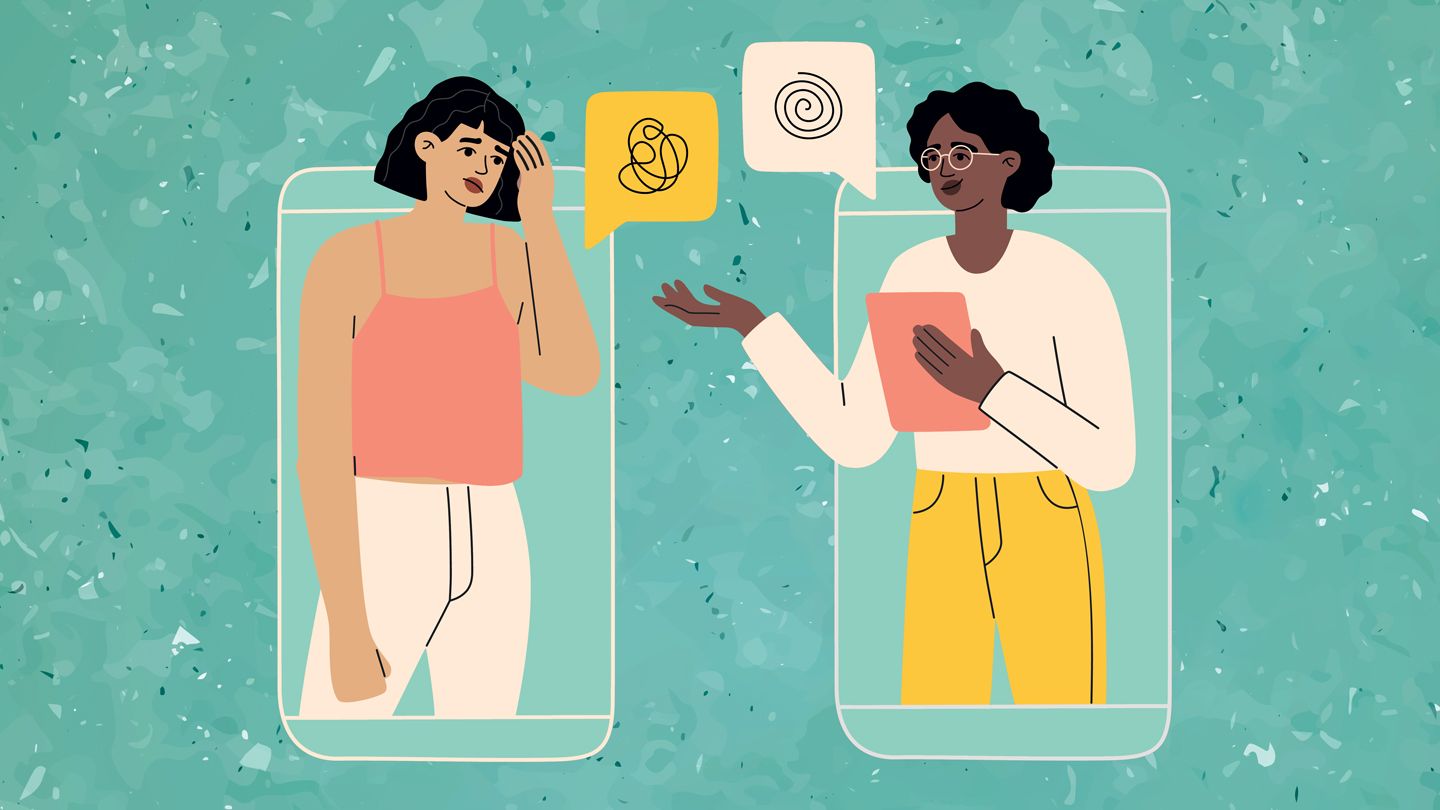
Treating clinical depression often requires a multi-faceted approach. In many cases, medication is necessary to help balance brain chemistry. However, medication alone is usually not enough. Therapy can be an extremely effective tool in helping people learn how to cope with the negative thoughts and behaviors associated with clinical depression.
Some of these treatment options are:
Medications
Medications are often used to treat clinical depression. The most common type of medication prescribed for depression is an antidepressant. Antidepressants work by helping to balance the chemicals in your brain that contribute to depression.
Therapy
Therapy can be an extremely effective treatment for clinical depression. It can help you learn how to cope with the negative thoughts and behaviors associated with the disorder. Therapy can also teach you healthy coping skills and problem-solving techniques.
Self-care
Self-care is an important part of any treatment plan for clinical depression. Eating a healthy diet, getting regular exercise, and getting enough sleep are all important self-care activities. Additionally, it’s important to find ways to relax and reduce stress.
Support groups
Support groups can be a helpful addition to any treatment plan for clinical depression. These groups provide an opportunity to share your experiences with others who are dealing with similar issues. Additionally, support groups can offer practical advice and tips for coping with the disorder.
Clinical depression is a serious mental illness that requires professional treatment. If you think you may be suffering from clinical depression, please reach out to a mental health professional for help.
How Does Clinical Depression Affect Someone?

The effects of clinical depression are different for everyone. It can cause physical problems such as fatigue, headaches, and stomachaches. It can also cause emotional problems such as sadness, anxiety, and irritability. Clinical depression can also lead to problems with work, school, and relationships.
Some of these impacts are:
Relationships
One of the main ways major depression affects people is through their relationships. Depression can make it hard to enjoy time with friends and family. It can also cause problems in romantic relationships. People with depression may withdraw from those they love and have trouble communicating.
Work
Depression can also affect a person’s work life. They may have trouble concentrating, miss work, or be less productive. This can lead to job loss or financial problems.
School
Students with major depression may have trouble concentrating and keeping up with their schoolwork. They may also miss school more often than other students. This can lead to falling behind and getting lower grades.
Family
Depression can also cause problems in families. Parents with depression may have trouble taking care of their children. They may also be more likely to argue with their spouse or other family members. Children who have a parent with depression may have behavior problems and do poorly in school. Depression can be hard on families, but there are ways to get help.
How To Prevent Clinical Depression?

There are many ways that people can prevent clinical depression. Some of these are:
Stay Away From Negativity
One of the main ways to prevent major depression is to stay away from negativity. This means that you should avoid people who are always negative and try to surround yourself with positive people. Sometimes, this is not possible, but it is important to try.
Get Enough Sleep
Another way to prevent major depression is to get enough sleep. This means that you should go to bed at a reasonable time and get up at a reasonable time. You should also avoid using electronic devices in bed.
Eat Healthy Foods
Eating healthy foods can also help prevent major depression. This means eating plenty of fruits, vegetables, and whole grains. You should also limit the amount of sugar and caffeine you consume.
Exercise Regularly
Exercising regularly is another great way to prevent major depression. This means getting at least 30 minutes of exercise every day. Exercise can help improve your mood and give you more energy.
Try To Reduce Stress
Stress can trigger major depression, so it is important to try to reduce stress in your life. This means avoiding stressful situations, if possible. It also means taking time for yourself to relax and do things you enjoy. These also help improve your mood and give you more energy.
Conclusion
Clinical depression is a serious mental illness that can have a profound effect on every aspect of a person’s life. If you think you may be suffering from clinical depression, it is important to seek professional help. With proper treatment, many people with clinical depression can manage their symptoms and lead fulfilling lives.
There are many different types of treatment available for clinical depression, and it is important to work with a mental health professional to find the right treatment for you. If you are struggling with clinical depression, know that you are not alone and there is help available.
Hope this article was of help to you! If you are suffering from clinical depression, you may seek help from Therapy Mantra. We have a team of highly trained and experienced therapists who can provide you with the tools and skills necessary for overcoming clinical depression. Contact us today to schedule an online therapy or download our free Android or iOS app for more information.
